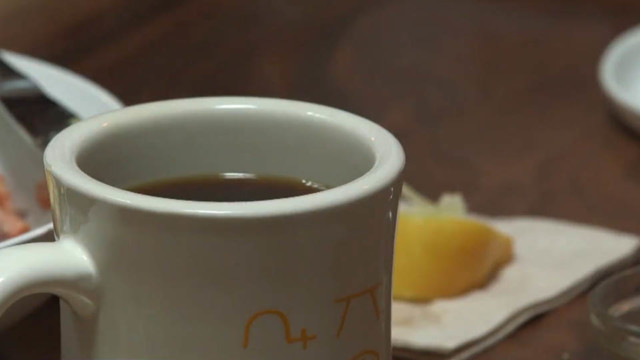Coffee is now the world’s second-most traded commodity after petroleum. But one entrepreneur thinks the way it’s purchased from farmers needs a technological upgrade.
It involves what’s known as blockchain technology. CGTN’s Hendrik Sybrandy reports.
Dan Jones is a coffee connoisseur. Not only does he like to make and drink it, he thinks the way coffee is typically brought to market leaves a lot to be desired.
“I think the supply chains for these commodities are the largest unautomated supply chains in the world right now,” said Jones.
This machine could change all that.
“You’d put coffee cherries in here, up to 30 kilograms,” said Jones.
Jones, the founder of Bext360, explained how his robotic device, when set up near a coffee field, uses artificial intelligence to evaluate and sort beans that are poured into it.
“Size, color, size consistency, color consistency, eventually density,” said Jones.
Then it uses that information to make a bid on each batch.
“It collects the goods, it analyzes the goods and then as soon as it makes that analysis it gives the farmer instant feedback on this is the quality you put into our machine, here’s how much you’ll get paid and if they say yes, we can pay them immediately using digital currency,” Jones said.
Blockchain technology keeps track of the transactions from the field to the time the finished coffee is sold.
Stellar Development Foundation Co-founder Jed McCaleb, “So Dan’s thing is pretty innovative and it’s one of the coolest things I’ve seen built on this blockchain idea.”
McCaleb is helping Jones make the supply chain more transparent and helping coffee farmers get a better price for their product.
“It’s just a way to kind of democratize access to this whole thing because otherwise they’re kind of cut out of the whole system,” said McCaleb. “They have to take whatever people will give them.”
“In general the farmers love the idea,” Jones said. “They like the idea of knowing what they produce and getting feedback on what they produce.”
This all comes as smartphone capability in coffee-producing places like Africa and Central America, blockchain technology and the desire of coffee drinkers to know where their coffee has come from are all coming together.
“Trying to make that link, the farm to table link, but for coffee,” Jones said.
Jones, who calls himself a serial entrepreneur, said he came upon this idea when he was exporting minerals from the Democratic Republic of Congo. He said his machines could be in places like Uganda and Colombia by the middle of next year.
“I love coffee for a number of reasons, I guess,” said Jones.
At a time when he said an estimated 16,000 cups of coffee are consumed each second globally, he thinks his idea is one whose time has come.
 CGTN America
CGTN America

